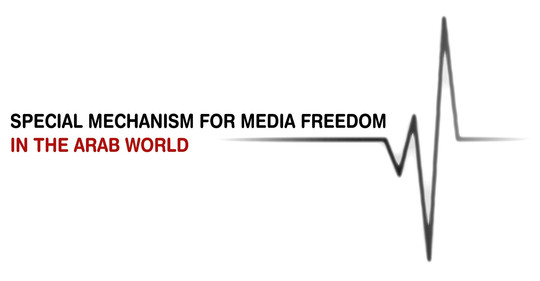"Assessing press freedom’s exercise in a country requires a more thorough and exhaustive methodology, which must include all the elements that embed this exercise in reality; laws, the existence of self-regulation bodies, the right to access information, the role of state medias to offer a genuine public service, editorial democracy within the press industry and medias, the protection of journalists, the respect of union rights, transparency with regard to owners and the financing of medias, and the independence of justice. As the Federation of journalists’ unions, we must be directly in contact with daily reality on the ground, and our reports on press freedom must be a platform as well as a tool for dialogue and negotiation, with all our partners and opponents, in order to move forward and manage to make progress for journalists and the exercise of liberty," said Younes Mjahed.
The first edition of the report, which will examine selected issues among the principles of the Declaration on Media Freedom in the Arab World (signed in six states in the region so far) and include individual cases, will be published in December. The meeting also reviewed the Explanatory note to the Declaration’s key principles. Toby Mendel, Director Centre for Law and Democracy and Ammar Dwaik, Director of the Independent Human Rights Commission (IHRC) in Palestine, member in the Arab Network of National Human Rights Institutions (ANNHRI), presented the key principles of the Declaration and how the Explanatory note will help in providing officials, judges, media policy makers practitioners with clear understanding of the Arab Declaration. Both documents will be formally launched at MedMedia’s final conference, scheduled in Tunis on 8-9 May. On 3 May the UNESCO conference adopted the Accra Declaration, which promotes “the creation, where they do not already exist, of official regional bodies and mechanisms that work to promote and protect the right to freedom of expression.”
For more information, please contact IFJ on + 32 2 235 22 16
The IFJ represents more than 600,000 journalists in 146 countries

